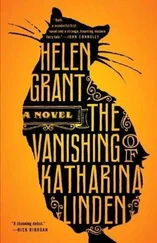Amanda Douglas - Helen Grant's Schooldays
Здесь есть возможность читать онлайн «Amanda Douglas - Helen Grant's Schooldays» — ознакомительный отрывок электронной книги совершенно бесплатно, а после прочтения отрывка купить полную версию. В некоторых случаях можно слушать аудио, скачать через торрент в формате fb2 и присутствует краткое содержание. Издательство: Иностранный паблик, Жанр: foreign_prose, foreign_children, на английском языке. Описание произведения, (предисловие) а так же отзывы посетителей доступны на портале библиотеки ЛибКат.
- Название:Helen Grant's Schooldays
- Автор:
- Издательство:Иностранный паблик
- Жанр:
- Год:неизвестен
- ISBN:нет данных
- Рейтинг книги:5 / 5. Голосов: 1
-
Избранное:Добавить в избранное
- Отзывы:
-
Ваша оценка:
- 100
- 1
- 2
- 3
- 4
- 5
Helen Grant's Schooldays: краткое содержание, описание и аннотация
Предлагаем к чтению аннотацию, описание, краткое содержание или предисловие (зависит от того, что написал сам автор книги «Helen Grant's Schooldays»). Если вы не нашли необходимую информацию о книге — напишите в комментариях, мы постараемся отыскать её.
Helen Grant's Schooldays — читать онлайн ознакомительный отрывок
Ниже представлен текст книги, разбитый по страницам. Система сохранения места последней прочитанной страницы, позволяет с удобством читать онлайн бесплатно книгу «Helen Grant's Schooldays», без необходимости каждый раз заново искать на чём Вы остановились. Поставьте закладку, и сможете в любой момент перейти на страницу, на которой закончили чтение.
Интервал:
Закладка:
Douglas Amanda M.
Helen Grant's Schooldays
CHAPTER I
HELEN
It had been a great day for the children at Hope Center the closing day of school, the last of the term, the last of the week. The larger boys and girls had spent the morning decorating the "big" room, which was to be the assembly-room. At the Center they were still quite primitive. There were many old or rather elderly people very much opposed to "putting on airs." Boys and girls went to school together, but they wouldn't have called it co-education. So the main room where various meetings and occasional entertainments were held, was always known by the appellation "big."
It was very prettily trimmed with the shining sprays of "bread and butter," and wild clematis, and the platform was gay with flowers. Seats were arranged on either hand for the graduating class, and the best singers in school. There was a very good attendance. Closing day was held in as high esteem as Washington's Birthday, or Decoration Day. Christmas was only partly kept, the old Hope settlers being an offshoot of the Puritans, and the one little Episcopalian chapel had almost to fight for its Holy days.
The first three seats in the audience-room were full of children in Sunday attire. The girl graduates were in white, with various colored ribbons. The boys' habiliments had followed no especial rule. But they were a bright, happy-looking lot, taking a deep interest in what they were to do. The boys had an entertaining historical exercise. One began with a brief account of causes leading to the revolution. Another followed with the part Boston played, then New York, then Philadelphia, Virginia, and the surrender of Cornwallis; afterward, two or three patriotic songs, several recitations – two distinctly humorous – another song or two, and then Helen Grant's selection, which was "Hervé Riel," a poem she had cut from a paper, that somehow inspired her. Diplomas were then distributed, and the "Star Spangled Banner," sung by everybody, finished the exercises.
Helen was fourteen, well-grown and very well-looking, without being pretty enough to arouse anyone's envy. "A great girl for book-learning," her uncle said, while Aunt Jane declared "She didn't see but people got along just as well without so much of it. It had never done a great deal for Ad Grant."
Helen had a bright, sunny nature – well, for that matter, she had a good many sides to her nature, and no girl of fourteen has them all definite at once. Some get toned down, some flash out here and there, and those of real worth come to have a steady shining light later on. But she never could hear Aunt Jane say "Ad Grant" in the peculiar tone she used without a sharp pang. For Addison Grant was her father, that is if he was still alive, and when Aunt Jane wanted to be particularly tormenting, she was sure he was roaming the world somewhere, and forgetting that he had a child.
Sixteen years before he had come to Hope Center and taught school. A tall, thin nondescript sort of man, a college graduate, but that didn't raise him in anyone's estimation. He was queer and always working at some kind of problems, and doing bits of translating from old Latin and Greek writers, and spent his money for books that he considered of great value. Why pretty Kitty Mulford should have married him was a mystery, but why he should have taken her would have seemed a greater puzzle to intellectual people. They went to one of the larger cities, where he taught, then to another, and so on; and when Helen was seven her mother came back to the Center a hopeless invalid with consumption, and died. Mr. Grant seemed very much broken. No one knew what a trial the frivolous, childish wife had been. He was disappointed at not having a son. He had some peculiar ideas about a boy's education, and he didn't know what to do with a girl. So he left her with her aunt and uncle, and for four years sent them two hundred dollars a year for her keep. Then he went to Europe without so much as coming to say good-by, and no one had ever heard of him since.
Helen's memories of her mother were not delightful enough to build an altar to remembrance. She had fretted a good deal. When she was out of temper she slapped Helen on the shoulder, and said she was "just like her father." Helen waited on her, changed her slippers, brushed her hair, and would have made a famous nurse if the end had not come. And then the life was so different.
The Mulfords were in many respects happy-go-lucky people. Aunt Jane scolded a good deal, or rather talked in a very scolding tone. But the children came up without much governing. Once in a while Uncle Jason struck one of them with his old gray felt hat; Helen didn't remember ever seeing him have a new one, but he wore a black one on Sunday. There were five rollicking children, and one daughter grown, who was engaged to be married at seventeen. Helen ran and played and worked and sewed a little, which she hated, and studied and read everything she could get hold of. There were Sunday-school library books, some of them very good, too; there were books she borrowed, and some old ones up in the garret belonging to her father. She read these quite on the sly, for she knew she should hate to hear comments made about them, and Aunt Jane might burn them up.
"It's mine!" declared Helen. "I'll hide it away. You have no business with it."
"What's that?" demanded Aunt Jane sharply. "Helen Grant, you just give that doll to 'Reely. You're too big for such nonsense! Now, 'Reely, that doll is yours, and if Helen takes it away, I'll just settle with her in a way she'll remember one while. You great baby-calf playing with dolls!"
Helen never troubled the doll after that. There was a crooked old apple-tree in the orchard, and after she had dipped into mythology she made a friend and confidant of it, read her stories to it, studied her lessons with it even in real cold weather. It was a sort of desultory education, until the last year, when Mr. Warfield came, and then Helen really found a friend worlds better than the old apple tree, though she still told it her dreams. And sometimes when the wind soughed through its branches it seemed as if she could translate what it said.
"Of course you go to the High School next year," Mr. Warfield said a week or so before school closed. "It would be such a pity for you to stop here. You have the making of a good scholar, and there is no reason why you shouldn't be a teacher. You have one admirable quality, you go so directly to the point, you are so ambitious, so in earnest, and you acquire knowledge so easily. You will make a broad-minded woman. I must say the Center people are rather narrow and self-satisfied, except the few new ones that have come in." And Mr. Warfield smiled.
Helen felt in her inner consciousness that it would be unwise to talk about the High School. And she was very busy. She was called upon to help with the ironing now. She darned all the stockings. She washed the supper dishes because Aunt Jane was tired out, and Jenny wanted to sew on her wedding outfit.
Everything had gone along very comfortably. Her white frock had a scant ruffle put on the bottom to lengthen it down, and new sleeves put in. Uncle Jason was really proud that she had to "speak a piece."
Everybody stopped to talk and discuss the exercises. The singing was pronounced first-rate. The History talk stirred up some revolutionary reminiscences among the old folks. Someone praised Helen's share in the entertainment.
"Well, I didn't just see the sense of it," declared Aunt Jane. "After all that great thing, savin' of the ships, as one may say, why didn't he ask for something worth while? Just a day to go off and see some woman – "
"She was his wife."
"And, I dare say, he had chances enough to see her. You can't tell what they are driving at in these new-fangled stories. Now there's 'Pity the sorrows of a poor old man, whose trembling limbs have borne him to your door,' and 'Columbia, Columbia, to glory arise, The Queen of the world, and the child of the skies' that children used to speak when I went to school, and you could sense them."
Читать дальшеИнтервал:
Закладка:
Похожие книги на «Helen Grant's Schooldays»
Представляем Вашему вниманию похожие книги на «Helen Grant's Schooldays» списком для выбора. Мы отобрали схожую по названию и смыслу литературу в надежде предоставить читателям больше вариантов отыскать новые, интересные, ещё непрочитанные произведения.
Обсуждение, отзывы о книге «Helen Grant's Schooldays» и просто собственные мнения читателей. Оставьте ваши комментарии, напишите, что Вы думаете о произведении, его смысле или главных героях. Укажите что конкретно понравилось, а что нет, и почему Вы так считаете.












